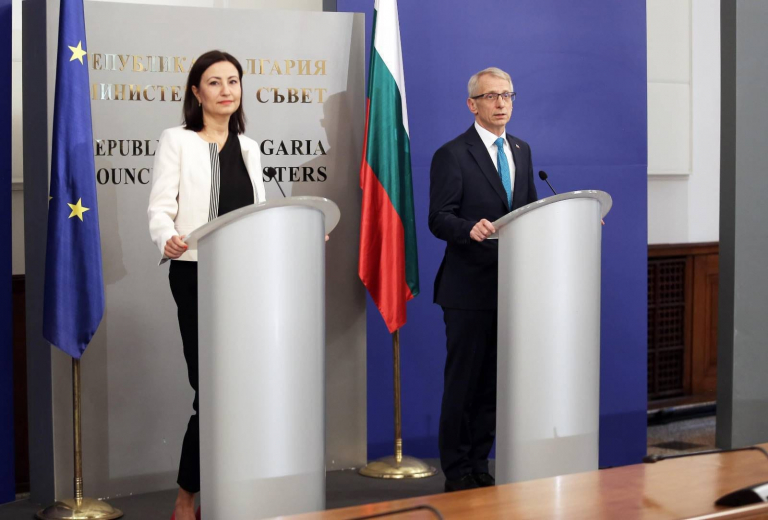
28.09.2023
The first regional innovation valley in Bulgaria will open in Plovdiv in October 2023. Its field of activities will be bioeconomy and foodstuffs. The valley will be one of the hundred such across the European Union. This was announced by the new Bulgarian European Commissioner Iliana Ivanova and Prime Minister Acad. Nikolai Denkov after their meeting today.
“The purpose of the initiative is to help especially small and medium-sized enterprises to make the contact between research, innovation and business and thus to promote entrepreneurship,” Iliana Ivanova explained who is in charge of innovation, education, culture, research, youth and sport as a member of the European Commission. The desired end result is greater economic growth in the respective regions.
A specific weakness of Bulgaria, as the Prime Minister pointed out, is the underdeveloped regulatory frame concerning opportunities to transform research into innovation. “For over ten years now the governments that came and went have been speaking about an Innovation Act, yet no such act has been passed. There is no regulation in place providing for the protection of intellectual property from the perspective of research-generated innovation and for the relationship between research and innovation, Acad. Nikolai Denkov explained. To fill in this gap, the government has drafted a bill on research and innovation. The bill will be approved at a cabinet sitting in the coming weeks and then submitted to the National Assembly.
In addition to the farming innovation valley in Plovdiv, Bulgaria will have a hydrogen innovation valley in Stara Zagora, which is associated with the energy transition in the country’s largest coalmining region, the Prime Minister announced. He emphasized that the changes in the energy sector as well as in the Judiciary, are not effected because the Commission wants them but because “the Bulgarian citizens and the Bulgarian energy sector workers need them so as to ensure a better future for the people in Bulgaria,” Acad. Nikolai Denkov noted. The Bulgarian economy needs cheap energy if it is to be competitive, however, in the midterm and in the longer term, the electricity generated by coal-fired plants will be non-competitive compared to other technology alternatives. Therefore, we must develop renewable energy sources, among other, the Prime Minister said further.
The redrafts in the Recovery and Resilience Plan (RRP), the territorial plans for the development of the coalmining regions and the climate transition roadmap will be submitted to the Commission in the first week of October 2023. However, this is not the end of work on these documents. Negotiations start to finalize all the texts, after discussions with the social partners, inter alia.
“Bulgaria’s request for the second disbursement under the RRP amounts to EUR 724 million. The payments are made based on achieved milestones and targets. The sooner the Bulgarian government meets its commitments, the surer the payment,” Iliana Ivanova said. She expressed her hope that this will come about by the end of this year and promised the Commission’s full cooperation if additional technical assistance is needed.